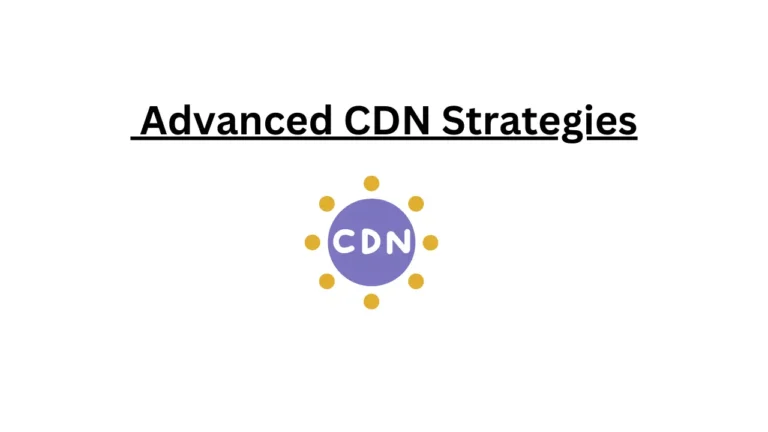Introduction: The Intersection Between Hosting and SEO
Search Engine Optimization (SEO) has become a vital aspect of digital marketing strategy, driving organic traffic and improving online visibility for websites. One often-overlooked element that significantly affects SEO is web hosting. Understanding the role of hosting in SEO is essential for website owners who strive for higher search engine rankings. A well-chosen web hosting service can provide numerous advantages, including faster page load times, reduced downtime, and improved site security, all of which are critical factors that search engines use when ranking websites. In this article, we will delve into the critical ways in which hosting influences SEO, illustrating why selecting the right hosting provider is fundamental to a website’s success in search engine results pages (SERPs).

The performance of your hosting service can have a direct impact on your site’s SEO. For example, page speed, a crucial ranking factor, is closely tied to the quality of your hosting provider. Sites that load quickly not only offer a better user experience but also tend to rank higher in search results. Furthermore, reliable hosting minimizes the risk of prolonged server downtime, ensuring that your website remains accessible to both users and search engine crawlers, which is vital for maintaining your site’s rankings. Another important aspect influenced by hosting is website security. Search engines, particularly Google, give preference to secure websites, often flagging insecure ones, which can negatively affect their visibility.
Choosing the right hosting service is therefore not just about finding a provider that keeps your site running; it’s about selecting one that optimally supports your site’s performance, security, and reliability. As we explore the multifaceted impacts of hosting on SEO in this article, you will gain insights into how various hosting factors contribute to your site’s search engine performance and why it is imperative to make an informed decision when selecting a hosting provider.“`
Understanding the Basics of Web Hosting
Web hosting serves as the backbone of the internet, providing the necessary infrastructure for websites to be accessed online. It involves allocating space on a server that stores all the files and data needed for a website to function. Different types of hosting services are available, each offering unique features and suitability for varied needs.
Shared Hosting: This is the most common type of web hosting and typically the most affordable. In shared hosting, multiple websites share resources on a single server, which helps reduce costs. However, the performance of a site can be impacted if other websites on the server experience high traffic. This can affect page load times and overall user experience.
VPS (Virtual Private Server): VPS hosting creates a virtual environment that mimics a dedicated server within a shared hosting environment. It offers more control and resources compared to shared hosting, providing better performance and stability. Websites on a VPS generally experience fewer issues related to resource limitations and can handle higher traffic volumes more efficiently.
Dedicated Hosting: This type of hosting allocates an entire server to a single website, ensuring maximum resources and control. Dedicated hosting is ideal for websites with significant traffic or those that require high performance and robust security. The overall performance, speed, and reliability of a site are greatly enhanced, though it comes at a higher cost.
Cloud Hosting: Cloud hosting distributes website data across multiple servers, which are typically located in various geographical regions. This setup enhances reliability, as the website can tap into another server if one fails. Cloud hosting also allows for scalable resources, so websites can easily handle traffic spikes without performance degradation.
Each type of hosting impacts a website’s performance and user experience differently. Understanding these variations is crucial for selecting the right hosting service that aligns with a website’s needs and goals, ultimately influencing its success in search engine optimization (SEO).
Site Speed and Performance
Web hosting significantly impacts the site speed and overall performance, which are critical factors in Search Engine Optimization (SEO). A high-performing hosting service can markedly reduce server response times, contributing positively to user experience and search engine rankings. Here, we’ll explore how hosting influences site loading speed and vital metrics like Time to First Byte (TTFB) and PageSpeed Insights.
Time to First Byte (TTFB) is a crucial metric that measures the time taken for a server to respond after a user makes a request. Lower TTFB values indicate faster server responses, which are desirable for both user experience and SEO. A good hosting provider should offer reliable servers with minimal latency, ensuring quicker TTFB.
PageSpeed Insights, a tool provided by Google, evaluates the performance of a webpage and offers recommendations for improvement. It considers a variety of factors, including server performance, and provides a score that reflects how well a page conforms to web performance best practices. High PageSpeed Insights scores can boost your site’s SEO performance.
Optimizing site speed through better hosting choices involves several strategic actions:
- Choose a Dedicated or VPS Hosting Plan: Shared hosting plans can slow down your site due to resource sharing. Opt for a Virtual Private Server (VPS) or a dedicated server to ensure your site has the necessary resources to run efficiently.
- Utilize a Content Delivery Network (CDN): A CDN can distribute your site’s content across multiple servers around the world, enhancing loading speeds for users regardless of their location.
- Regularly Monitor Hosting Performance: Utilize tools and services to continually monitor and assess your hosting performance. Regular audits can help you identify and rectify performance bottlenecks.
- Enable Compression and Caching: Implement server-side compression (e.g., Gzip) to reduce file sizes and enable caching to store frequently accessed data, both of which can significantly speed up page loading times.
Investing in quality hosting and leveraging these strategies can considerably enhance your site’s speed and performance, thereby strengthening your site’s SEO and delivering a better user experience.
Server downtime poses a significant threat to search engine optimization (SEO) efforts, directly impacting a website’s search rankings. When a server goes down, the website becomes inaccessible, causing disruptions for both search engine crawlers and human visitors. Search engines like Google regularly index websites to ensure they offer the most current and reliable information to users. If these crawlers encounter persistent downtime, it lowers the website’s authority, affecting its ranking negatively in search results.
Uptime guarantees are a measure of a hosting provider’s reliability, typically expressed as a percentage. For instance, an uptime guarantee of 99.9% means that the server is expected to be operational for all but 0.1% of the time in a given period. Selecting a hosting provider with high uptime is crucial for maintaining optimal SEO performance, as consistent accessibility ensures that search engines can index your site without interruptions.
Studies have shown that downtime, even if infrequent, has a tangible impact on user experience and search visibility. For example, a server outage of just one hour per month equates to more than 12 hours annually, which can be detrimental for websites with high traffic volumes. This downtime can lead to a loss of potential customers, reduced engagement, and a decline in user satisfaction, all of which contribute to a lower search ranking.
Real-world examples underscore the importance of reliable hosting. Websites experiencing frequent downtime often see a direct correlation with decreased search engine rankings. For instance, an e-commerce platform experiencing daily outages may face a drop in organic traffic, resulting in lost sales opportunities and diminishing online reputation. Therefore, it is imperative to choose a hosting provider that offers robust uptime guarantees to ensure continuous availability and support sustained SEO efforts.
Security Considerations
A secure hosting environment is crucial not only for protecting a website from potential cyber-attacks but also for optimizing its performance in search engine rankings. Security measures are integral to safeguarding sensitive data, ensuring uninterrupted access, and fostering user trust, all of which contribute to enhanced SEO.
One of the paramount features to look for in a hosting provider is the availability of SSL (Secure Sockets Layer) certificates. SSL certificates encrypt data transmitted between the user and the server, ensuring that personal information and transactional data remain confidential. This encryption is not only essential for security but is also a critical factor in Google’s ranking algorithm. Sites with SSL certificates are given preferential treatment in search results, making this an indispensable aspect of SEO.
Firewall protections are another vital security feature. Firewalls act as a barrier between the trusted internal network and untrusted external networks, monitoring and controlling incoming and outgoing traffic based on predetermined security rules. They can thwart various types of cyber-attacks, including DDoS (Distributed Denial of Service) attacks, which can severely impact a website’s uptime and accessibility. Hosting providers that offer robust firewall protections help ensure the consistent availability of the site, which is favorable in Google’s eyes and positively influences SEO.
Regular backups provided by the hosting provider are essential for quick recovery in the event of data loss or site compromise. Automatic backups ensure that even if a security breach occurs, the website can be restored promptly to its previous state, minimizing downtime and potential SEO penalties. For an SEO strategy to be effective, your website must remain online and available to users and search engine crawlers alike.
Google places significant emphasis on site security. Websites that implement and maintain strong security measures are regarded more favorably, directly impacting their search engine rankings. A hosting provider that prioritizes security not only protects the website but also supports ongoing SEO efforts by ensuring the site is safe, accessible, and reliable.
Geolocation and Server Locations
The physical location of servers plays a significant role in the effectiveness of search engine optimization (SEO), especially in the context of local searches. One critical concept in this domain is ‘geotargeting,’ which refers to the practice of delivering content to users based on their geographical location. A website hosted on servers closer to a target audience generally results in faster load times and increased relevance in local search results.
When a user initiates a search, search engines aim to provide the most relevant results. One of the factors considered is the geographical proximity between the searcher and the server hosting the website. A shorter distance usually translates to a quicker loading time, positively impacting the user experience and thereby improving the website’s ranking in local searches. Conversely, servers located far from the target user base might lead to slower load times and lower rankings.
To illustrate this, consider the following comparative table showcasing average load times from different server locations for a website targeting an audience in New York:
| Server Location | Load Time (seconds) |
|---|---|
| New York | 1.2 |
| Los Angeles | 2.1 |
| Europe | 3.5 |
| Asia | 4.8 |
The table highlights how server location can markedly affect load times. This latency might seem marginal, but it can significantly influence user engagement and session duration, further substantiating the importance of geotargeting.
Businesses looking to optimize their websites for specific locales should seriously contemplate hosting their sites on servers geographically closer to their predominant customer base. This approach not only boosts load times but also enhances the relevance of the content served, thereby fortifying the overall SEO strategy.“`html
Scalability and Growth
Selecting a hosting provider with robust scalability features is paramount for businesses anticipating growth. Scalability in hosting refers to the ability to handle increasing amounts of work efficiently, particularly in the context of website traffic and data load. As your business expands, your website will likely experience higher traffic volumes, necessitating a hosting plan that can support this growth without compromising site performance. A scalable hosting solution ensures that your website remains responsive and quick, essential factors that search engines consider when ranking sites.
From an SEO perspective, site performance is critical. Slow-loading websites can result in higher bounce rates, where users leave your site quickly without interacting. Search engines interpret high bounce rates as a sign of poor user experience, which can negatively impact your SEO rankings. Therefore, choosing a hosting provider that offers seamless scalability is essential for maintaining optimal site performance and ensuring a positive user experience.
When evaluating hosting providers, consider features such as bandwidth, storage capacity, and the flexibility to add resources dynamically. Bandwidth is crucial as it dictates the amount of data transferred from your website to visitors’ browsers. Insufficient bandwidth can lead to slow page loads or even site crashes during traffic surges. Storage capacity, on the other hand, affects the amount of data your site can store. As your content grows, so does your need for storage.
Additionally, the ability to add resources quickly is vital. Whether it’s increasing CPU power, RAM, or disk space, swift resource allocation can dramatically improve site performance during peak traffic periods. Hosting providers that offer scalable cloud solutions are particularly advantageous, providing on-demand resource allocation tailored to your site’s needs.
In conclusion, ensuring your hosting provider supports scalability and growth is vital for sustained SEO success. By choosing a provider with a robust scalability infrastructure, you prepare your website to handle increasing traffic smoothly, maintaining optimal performance and enhancing user experience—all crucial factors for high search engine rankings.“`
Conclusion and Key Takeaways
The intricate relationship between hosting and search engine optimization (SEO) cannot be overstated. Throughout this article, we’ve delved into various facets underscoring the importance of a robust hosting provider in the pursuit of SEO success. A high-quality hosting service can significantly influence your website’s speed, reliability, security, and scalability—all critical factors that search engines consider when ranking websites.
One of the key takeaways is website speed. Search engines such as Google prioritize fast-loading sites, making speed a pivotal factor in SEO. Slow sites not only suffer in SERP rankings but also experience elevated bounce rates, detracting potential customers and reducing overall user satisfaction. Hence, a hosting service that guarantees optimal speed can be a game-changer for your SEO strategy.
Reliability is another cornerstone. Downtime can dramatically affect user experience and search engine crawlability, both of which are detrimental to your SEO efforts. Reliable hosting ensures your site is up and running, enabling continuous access for users and search engine bots alike.
Additionally, security cannot be overlooked. Search engines bolster the rankings of secure sites as part of their commitment to improving user experience. Hosting providers offering strong security measures, such as SSL certificates and regular security updates, contribute significantly to maintaining the integrity and ranking of your website.
Finally, scalability is essential for growing businesses. A scalable hosting solution accommodates traffic spikes without compromising on performance. As your business expands, employing scalable hosting can sustain your SEO momentum by providing consistent user experience regardless of visitor volume.
In conclusion, investing in a quality hosting service is crucial for achieving and maintaining SEO success. We encourage you to evaluate your current hosting situation and consider improvements that align with the discussed key takeaways. Doing so not only enhances your site’s performance but also propels your SEO efforts towards tangible results.
FAQs: Common Questions About Hosting and SEO
1. How does web hosting affect my search engine rankings?
Web hosting can significantly influence your search engine rankings. A reliable hosting provider ensures your website has minimal downtime, which means search engines can regularly index your pages. Additionally, hosting that offers fast server speeds contributes to quick page load times, a critical factor in user experience and thus in SEO rankings. A slow or unreliable hosting service can lead to increased bounce rates, negatively impacting your site’s SEO.
2. What type of hosting is best for SEO?
The type of hosting best for SEO depends on your specific needs but generally, a dedicated or VPS hosting solution is recommended. These types offer greater control, faster server response times, and higher reliability compared to shared hosting. For smaller sites, quality shared hosting with good reviews might suffice. However, ensure it includes essential features such as adequate bandwidth, storage, and robust uptime guarantees, as these factors contribute to better SEO performance.
3. Can switching hosts improve my site’s SEO?
Switching to a higher-quality host can positively impact your site’s SEO. If your current host experiences frequent downtimes, slow speeds, or poor support, moving to a more reliable host can enhance your site’s performance. This improvement can lead to faster load times, reduced bounce rates, and increased user satisfaction, all of which are beneficial for SEO. Ensure that during the switch, SEO-focused best practices are followed to prevent any negative impact on your site’s rankings.
4. How important is server location for local SEO?
Server location can be important for local SEO because it affects your site’s loading speeds for local users. A server closer to your target audience facilitates faster loading times, which can enhance user experience and contribute to better local search engine rankings. Additionally, some search engines consider the IP address location as an SEO factor, further emphasizing the significance of hosting servers in or near your target region.
5. What security features should I look for in a web host?
Security is crucial for SEO as search engines prioritize secure and trustworthy websites. When choosing a host, look for features such as SSL certificates, daily backups, DDoS protection, and malware scanning. These features not only protect your site from threats but also ensure that your site’s trustworthiness is maintained, which can positively influence your SEO. An insecure site risks being penalized by search engines and facing lower rankings.

